If I had showed you a photo of the male bird puzzler #200, I am sure many more of you would have recognized it, as it is so striking that it’s hard to confuse with any other bird. The female though is a bit more difficult.
Here are the males; recognize them? They are rose-breasted grosbeaks! As you can see here, the female got the short end of the stick on that one and is not very impressive with her plain brown plumage.
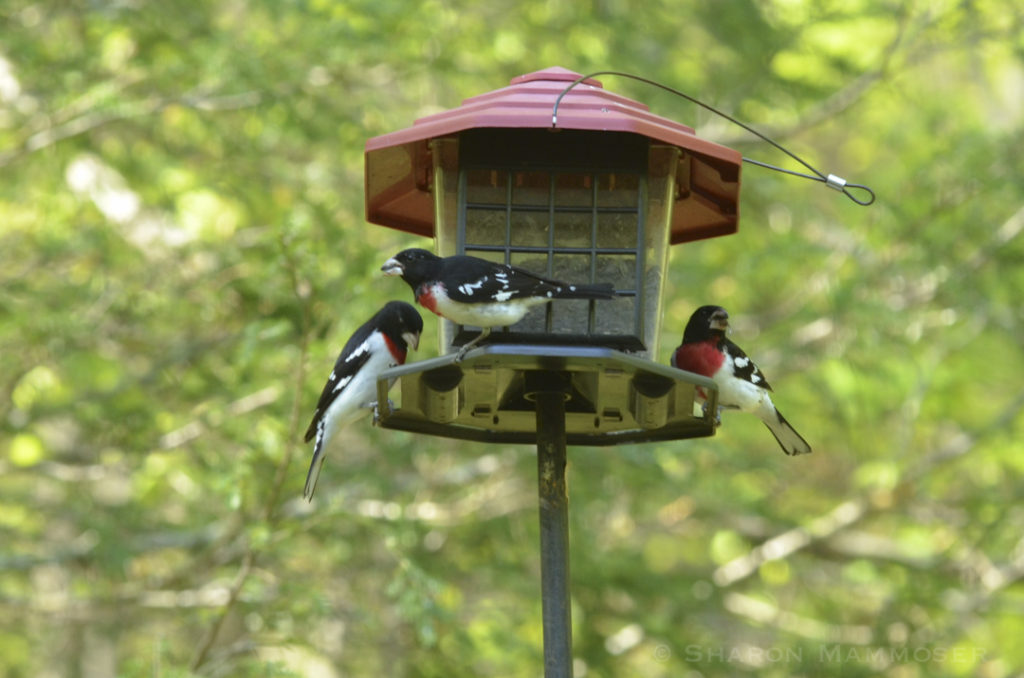
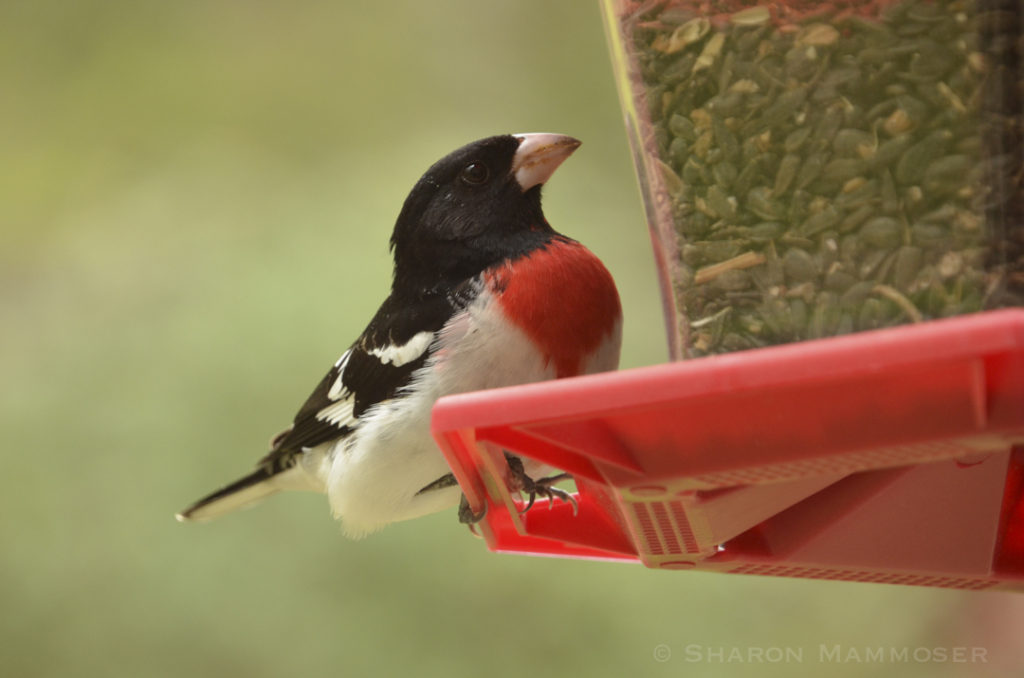
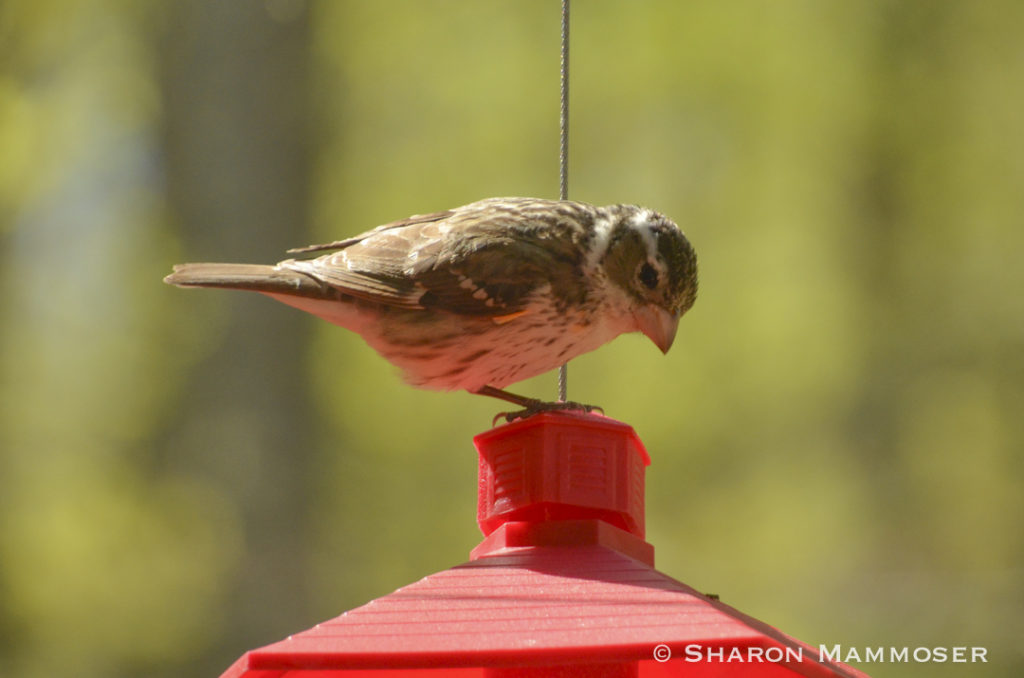
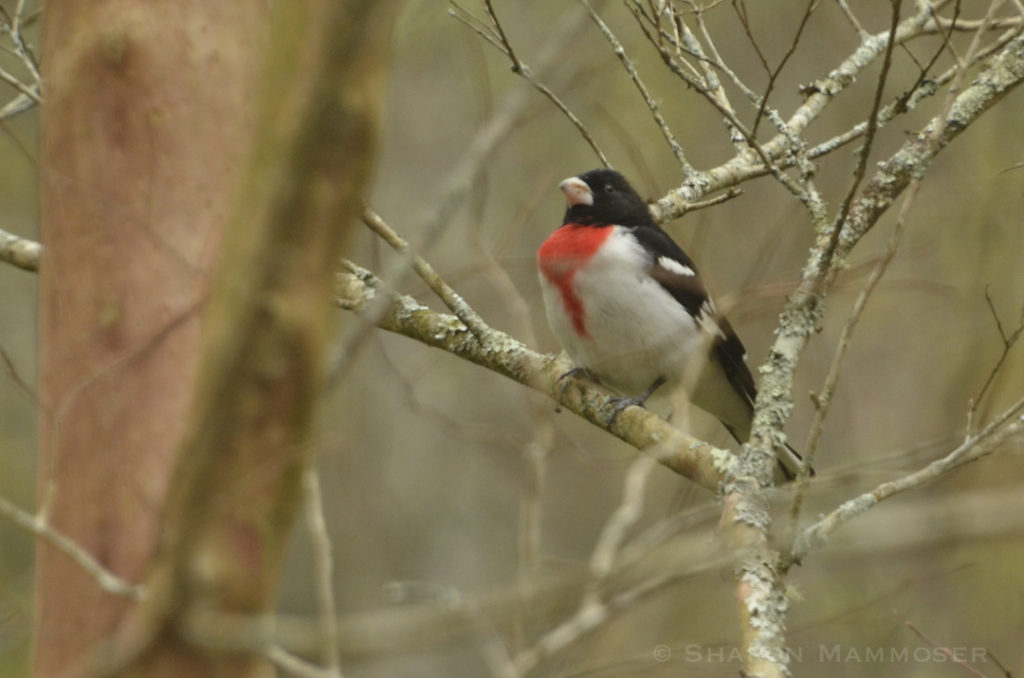
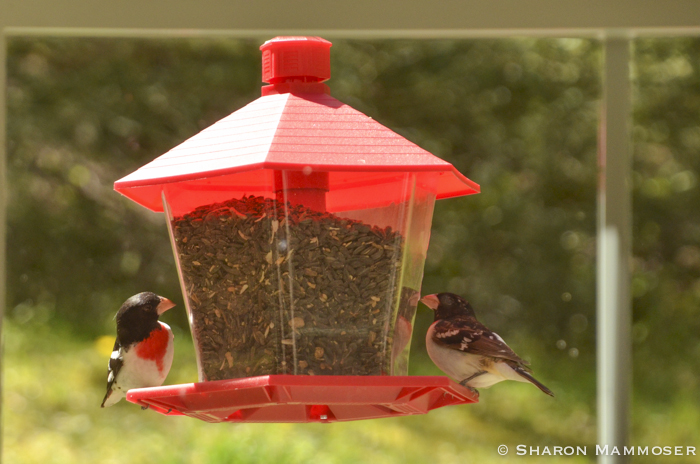
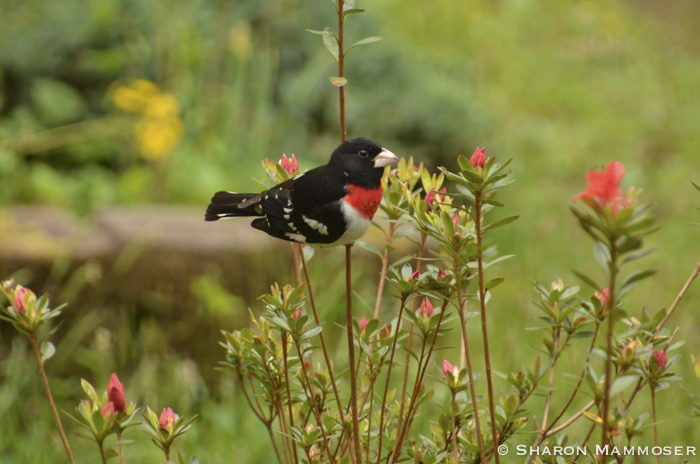
Rose-breasted grosbeaks belong to the cardinal family and do not stay in western North Carolina to breed, but simply travel through on their way farther north. We usually have them here at our house for a few days each spring, when the azaleas are in bloom, and then again for a short time in the fall, as they are migrating to central and south America. It is always such a treat to see one, or two, or 4 males at one time! Which happened only once here and I was not home at the time. But I did get to see 3 at once, all of the males sitting together on the feeder!
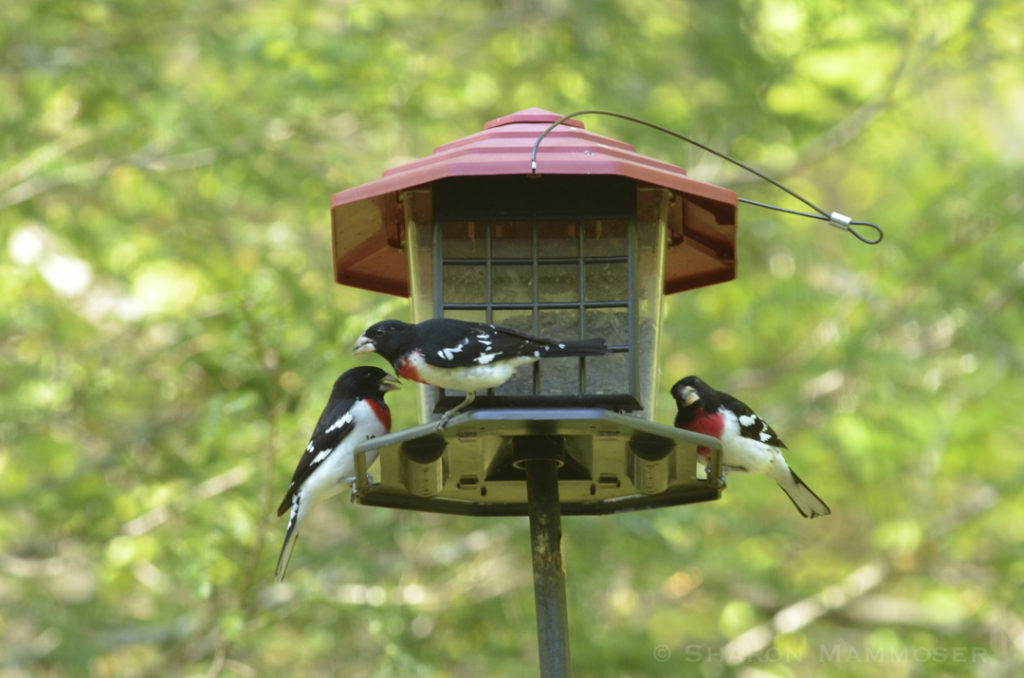
Male and female rose-breasted grosbeaks share the duties of raising young. Both sexes help construct the nest, which is usually placed in the fork of a deciduous tree, about 6-26 feet from the ground. Both sexes also incubate the eggs, and interestingly, they sing when they exchange places! And sometimes the male will continue to sing as he sits on the eggs. Females lay 1-5 bluish/green eggs which will hatch out in 12-14 days.
Can you guess what the rose-breasted grosbeak eats? Notice their large beak, great for eating insects like beetles and other bugs, as well as seeds, nuts and berries.
Ready for another puzzler? Puzzler 201 features another striking bird that is hard to misidentify, as its crest and black mask give it away.

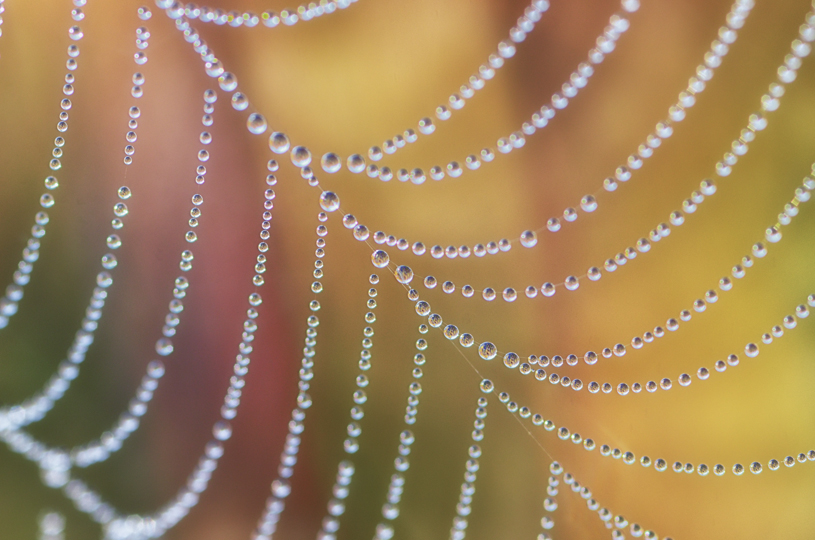
Sharon, what do you do with your feeders in regard to bears? Taking them in at night seems insufficient, since we see bears at any time of day. Thanks!
We have them hanging on a rope high above the ground, in the same way that one would hang a bear bag for your food if you were backpacking. The bears cannot reach it and have no way to climb to get it. We bring them in at night.